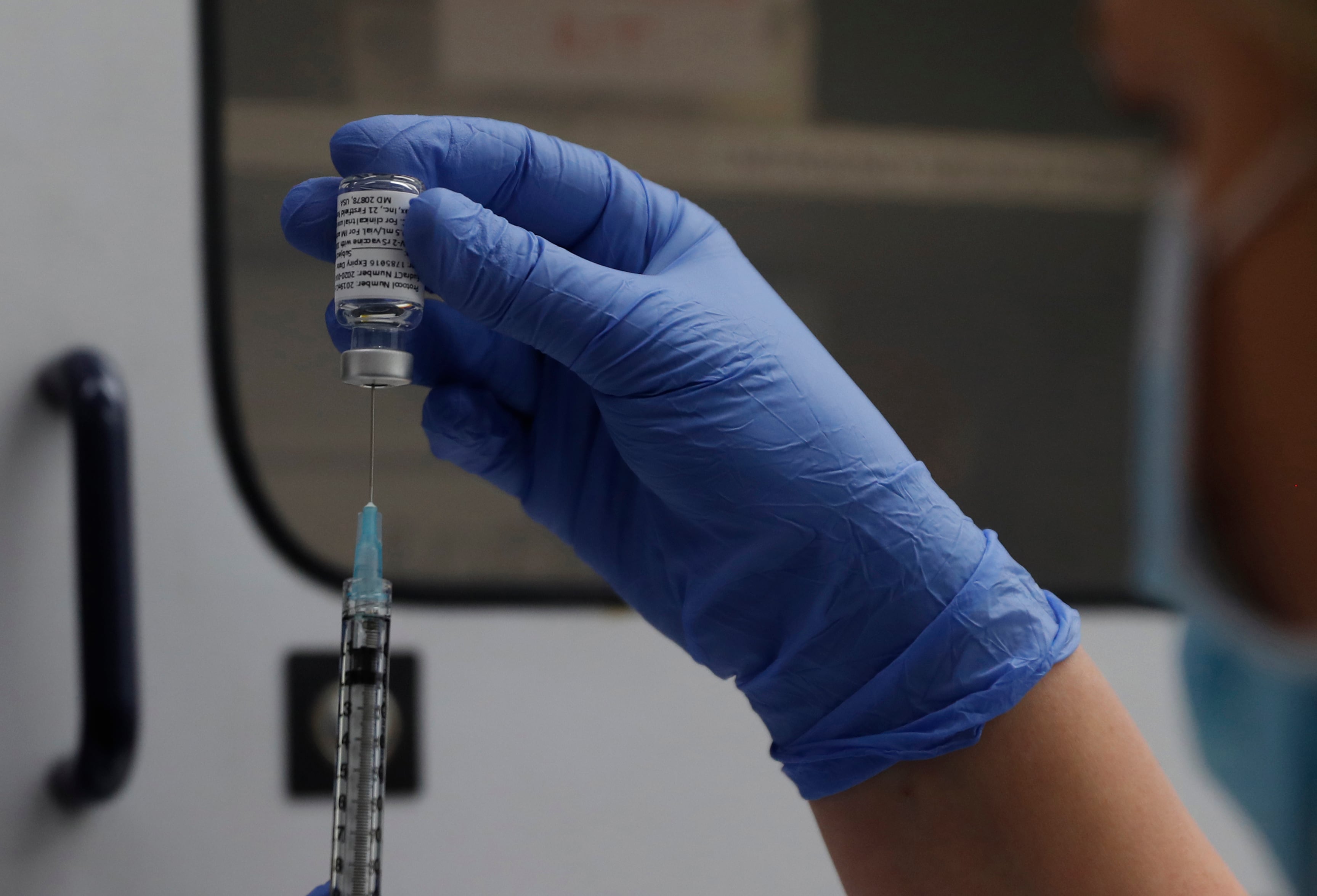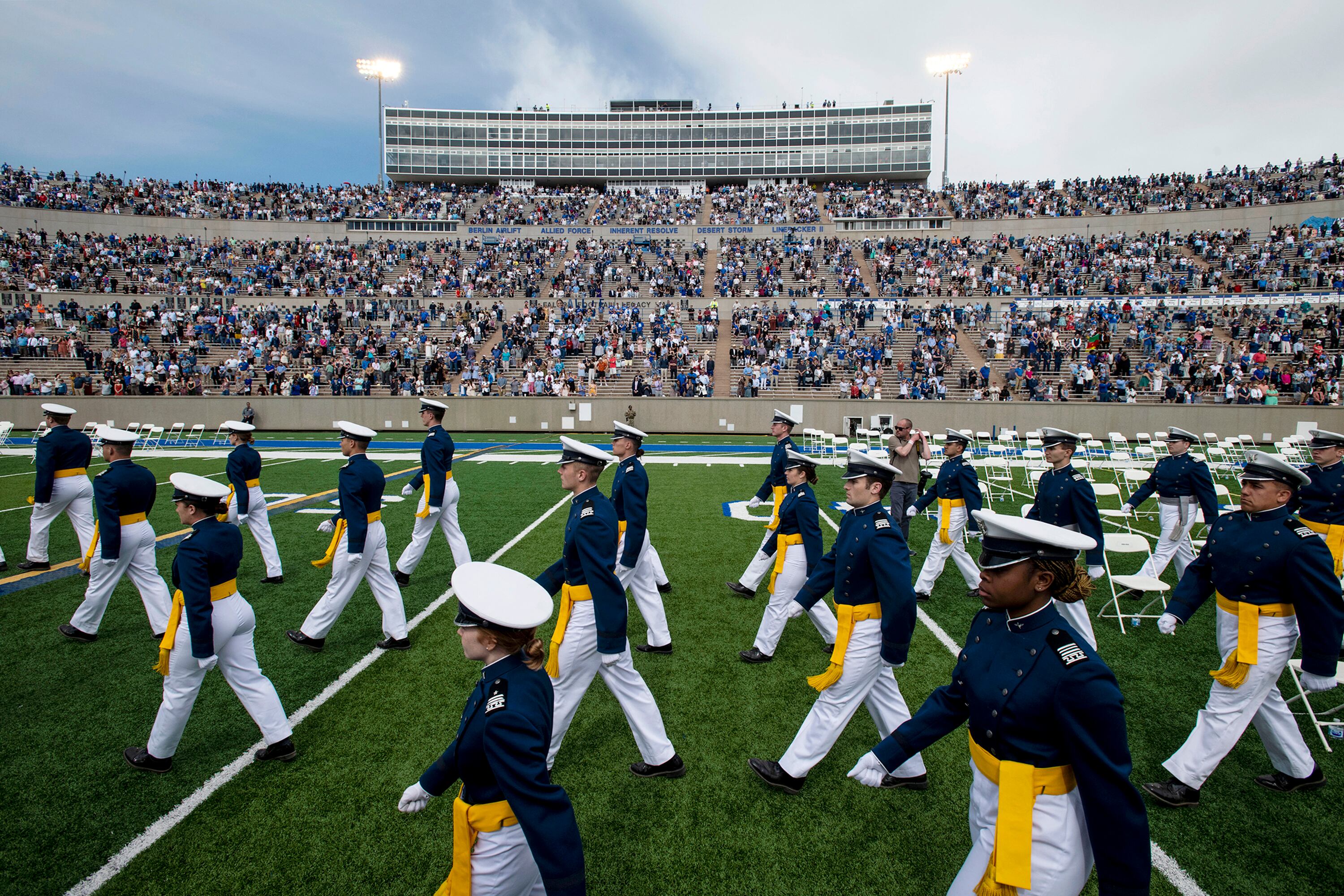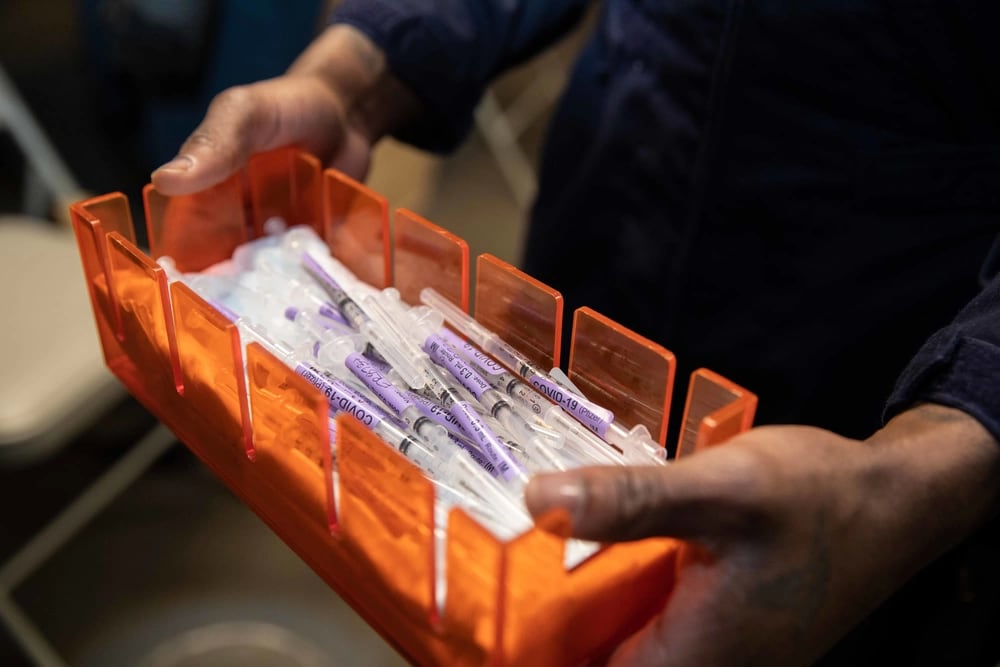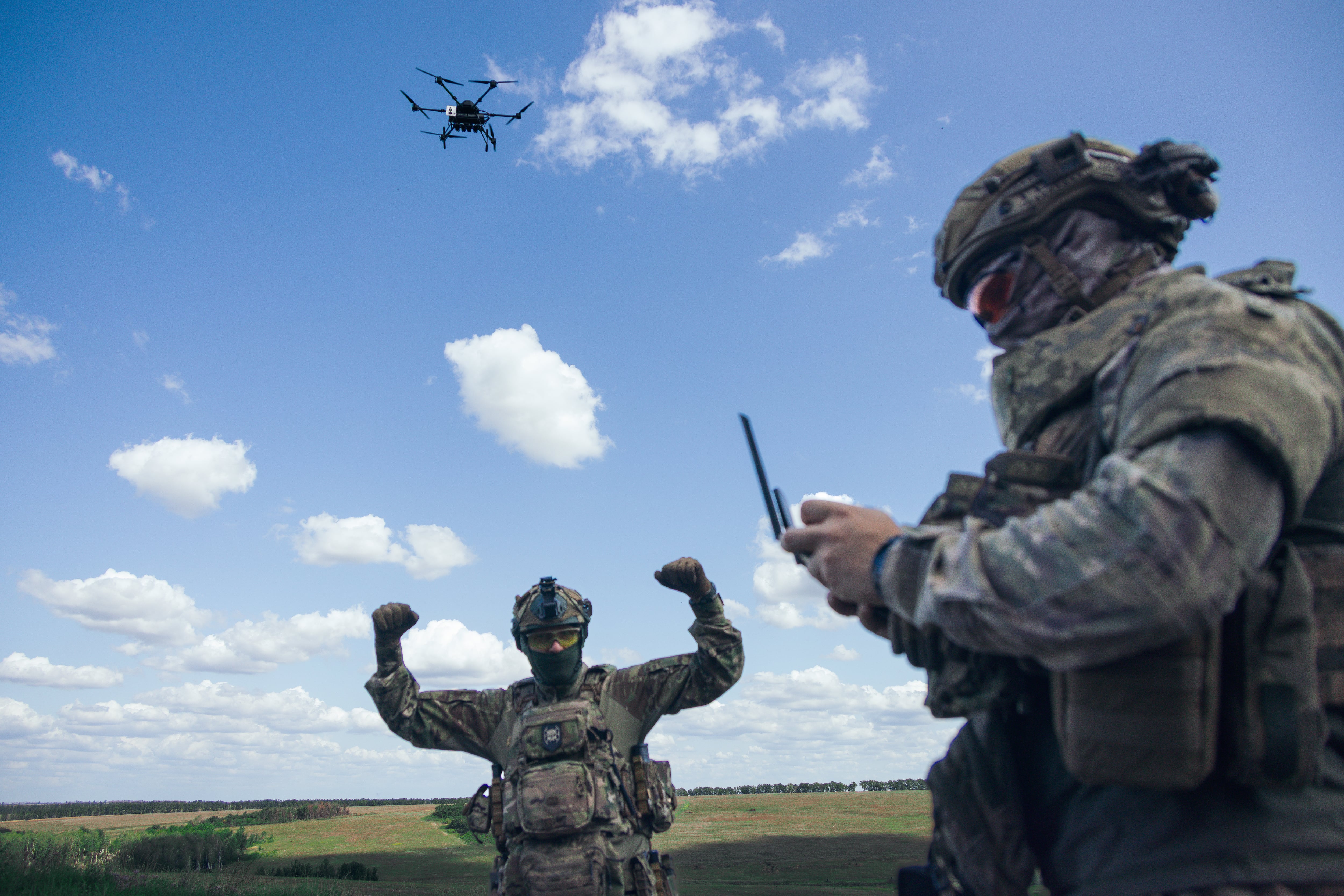Correction: A previous version of this story misstated the name of Novavax’s COVID-19 vaccine. It is currently known in the United States as “NVX-CoV2373.″
A federal district court judge has stopped the Air Force from expelling or otherwise punishing thousands of troops who have applied for a religious waiver to avoid COVID-19 vaccination, under a newly minted class-action lawsuit.
Southern District of Ohio Judge Matthew McFarland’s July 27 decision to certify the case, Doster v. Kendall, as a class-wide complaint temporarily protects at least 100 airmen and guardians who are part of ongoing lawsuits contesting the Pentagon’s vaccine mandate, and more than 9,000 others affected by the policy, according to Siri & Glimstad, a law firm representing the plaintiffs.
The group now includes anyone in the active duty Air Force and Space Force, Air Force Reserve, Air National Guard, U.S. Air Force Academy and Air Force Reserve Officer Training Corps who have asked for a religious exemption to the vaccine since Sept. 1, 2021, showed a sincere religious belief opposing the jab, and whose requests were denied or are not yet settled.
“Members who submitted requests for religious accommodation may cancel or amend previous voluntary retirement or separation requests, or requests to transfer to the Air Force Reserve,” McFarland wrote.
The Air Force and Space Force must also accept unvaccinated people who otherwise qualify to join the military, he added.
This marks the second time a federal court has barred a branch of the military from separating members for failing to comply with the Pentagon’s COVID-19 vaccine mandate. The Navy became the first to halt that practice in March, when a judge granted class-action status in a case representing Navy SEALs who refused the shots on religious grounds.
Department of the Air Force spokesperson Ann Stefanek confirmed July 28 that the department, which includes the Air Force and Space Force, will comply with the order.
As of July 11, the Air Force had already kicked out more than 830 airmen and guardians who refused vaccination, according to its most recent data.
The number of exemptions sought has fluctuated over the last several months as some people decided to get the shots or leave the service instead of seeking accommodation. As of July 12, the Air Force had denied about 6,800 initial religious waiver requests and 3,600 appeals, and has not ruled on nearly 3,500 more cases.
In contrast, 135 airmen and guardians have secured religious exemptions so far.
That included 106 in the active duty Air Force, three in the active duty Space Force, 22 in the Air Force Reserve and four in the Air National Guard, according to court documents in Doster v. Kendall. The Air Force does not publish religious accommodation data by component in its twice-monthly updates.
RELATED

The department has also awarded about 430 waivers for medical reasons, including 286 for active duty airmen and guardians, and 105 administrative exemptions, including 83 among Reservists.
In the Ohio case, 2nd Lt. Hunter Doster of Wright-Patterson Air Force Base and more than a dozen other plaintiffs argue the Air Force is forcing them to lose their livelihoods or violate their religious beliefs by receiving vaccines they say are impure or have ties to abortion.
Pfizer and Moderna’s mRNA products used cells replicated from a fetus aborted in the 1970s to make sure the vaccines worked in human cells. The fetal cells were not used to produce either vaccine, National Geographic reported last fall.
Johnson & Johnson uses cells replicated from a fetus aborted in 1985 to produce its vaccine, but those cells are filtered out from the final product.
RELATED

Some service members have opted for Covaxin, a vaccine made in India and endorsed by the World Health Organization, or another made by Maryland-based Novavax and approved for emergency use by the Food and Drug Administration. Neither product claims to use cell lines or tissue derived from human fetuses, making them potential winners for those who object to abortion.
Everyone who joins the military must receive a slate of several vaccines to enter, including chickenpox, rubella and hepatitis A. Each of those shots also involves cell tissue derived from fetuses, as does one version of the rabies vaccine. Rabies shots are required only for some service members in certain career fields.
The Air Force had a chance to convince the judge not to green-light the class action, but declined to engage with the plaintiff’s arguments in a written rebuttal. So the judge went ahead and broadened the suit.
“Defendants fail to raise any persuasive arguments for why the court should not extend the preliminary injunction issued on March 31, 2022, to cover the class members,” McFarland wrote in the order.
RELATED

The Air Force can still take an airman or guardian’s vaccination status into account when considering them for upcoming assignments, deployments or other operational decisions.
All but approximately 14,000 airmen and guardians, about 3% of Department of the Air Force troops, are fully vaccinated.
Nearly 91 million COVID-19 cases have been reported in the United States so far, according to the U.S. Centers for Disease Control and Prevention. More than 1 million people have died from the virus; about two-thirds of the country is fully vaccinated.
“COVID-19 vaccination significantly lowers your risk of severe illness, hospitalization, and death if you get infected,” the CDC said. “Compared to people who are up to date with their COVID-19 vaccinations, unvaccinated people are more likely to get COVID-19, much more likely to be hospitalized … and much more likely to die.”
Rachel Cohen is the editor of Air Force Times. She joined the publication as its senior reporter in March 2021. Her work has appeared in the Washington Post, the Frederick News-Post (Md.), Air and Space Forces Magazine, Inside Defense, Inside Health Policy and elsewhere.





